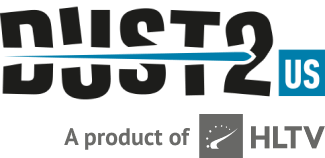
UPDATE: NACCS updates player eligibility rules for FACEIT Collegiate CS:GO League
The North American Competitive Collegiate Series (NACCS) has released updated rulesets for their CS:GO and VALORANT leagues following scrutiny by their player base for their stances on professional and ex-professional player involvement at the collegiate level.
The original version of the ruleset banned all current professional players as well as ex-professional players. This has since been updated to say that ex-professional players may be approved on a case-by-case basis in a way that preserves the "amateur nature" of the league.
Originally, that limitation would have barred Cameron "cam" Kern from participating, after he deliberately left the professional scene to further his education at the University of New Haven and develop their CS:GO program. From the beginning his goal was to build the first collegiate team to earn promotion to ESEA Mountain Dew League from the ground up while streaming the whole process to give fans insight into their journey. His previous experiences from his time playing with Chaos and Singularity would have stopped him dead in his tracks.
The same would have been true for Logan "Voltage" Long, who now attends Michigan Tech. Though the owner of NACCS has since confirmed that both Voltage and cam are eligible to play in the league this season so long as they aren't collecting a salary, it does not mean that this won't pose a threat to future talent that achieved similar heights at a young age.
Even the updated rules could be seen to undercut the incentive for young players to capitalize on their talents to pursue higher education as their peers who pursue traditional sports do. Instead of trying to entice more ex-pros like cam to pursue collegiate CS:GO and develop the other players within the scene, NACCS seems to be more interested in creating a safe space for players by limiting the influx of talent into their space in the name of "competitive integrity".
The recently revised Amateur Collegiate Player Classification clause within the NACCS ruleset is as follows:
Collegiate teams must consist of amateur collegiate players who all attend the same college or university.
Collegiate players are classified as “amateur” automatically unless a player is known to be currently competing in a CS:GO Professional League (ex. EPL and Flashpoint) and are sponsored as a Professional player for an Esports organization.
Players who have competed Professionally in a CS:GO league in the past must submit themselves to review for their amateur status. Previous pros will be handled on a case by case basis to ensure that the competitive integrity and amateur nature of the league will not be in jeopardy. Time since Pro, Relevant experience, achievements, statistics, and other ex-professional players presence at the school will all be considered during this process.
Current non-amateur players will not be allowed to compete in any NACCS competitions.
The ruleset in its entirety can be found here.
It is worth noting that even in its current state the ruleset remains fundamentally flawed and fails to address fundamentally understood differences within the esports space. NACCS's written definition of a professional player is anyone that is playing in a professional league and collecting a paycheck from an esports organization. The incredibly nonspecific nature of this definition presents potential for a great deal of confusion and variable enforcement.
In other words, in the eyes of NACCS there is no difference between players who play for Liquid, Evil Geniuses, or Chaos compared to teams like Depth, Rebirth, or ImPerium. On paper, they are all "esports organizations" despite the fact that the compensation and support of their players vary drastically from one organization to the next. Painting all of the players with "organizational support" with a broad brush lacks insight and hinders potential development of this collegiate league while it is still in its infancy.
UPDATE: Since publication NACCS has amended the ruleset to provide further clarification. It now reads:
Amateur Collegiate Player Classification
Collegiate teams must consist of “amateur” collegiate players who all attend the same college or university.
Collegiate players are classified as “amateur” automatically unless a player is known to be currently competing in a CS:GO Professional League (e.g. EPL and Flashpoint) AND are a salaried, Professional player under contract for an Esports organization. MDL or other leagues on a similar level are not included in this category.
Exceptions
Current and former non-amateur players need to apply for an exception by contacting a NACCS Commissioner before competing. These applications will be handled on a case by case basis to ensure that the competitive integrity and amateur nature of the league will not be jeopardized. Factors that will be considered during this evaluation process include: time (if any) since they last competed at a professional level, current career situation (e.g. their team’s HLTV ranking), experience/tenure, achievements, statistics, and the presence of other professional players/the overall strength of a school’s program.
Players who sign with a Professional team during the current tournament are allowed to finish out the season with their collegiate team. These players will need to re-apply for an exception before competing in the next school year competition.
Also read



































